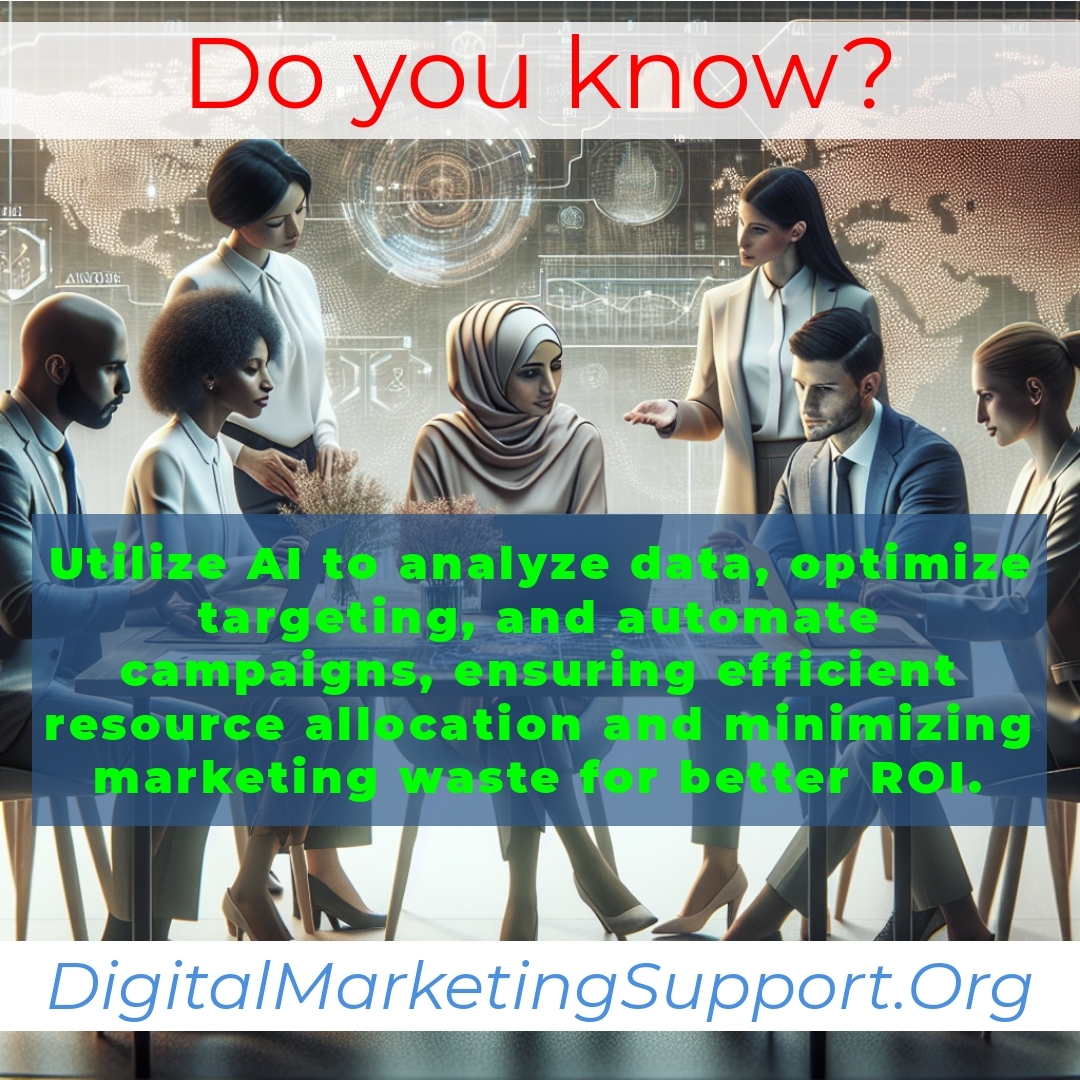Artificial Intelligence (AI) is transforming the marketing landscape, providing businesses with innovative ways to enhance efficiency and reduce waste. As companies face increased pressure to optimize their marketing strategies, leveraging AI technologies emerges as a vital solution. This article explores actionable insights into how AI can effectively minimize marketing waste and improve overall marketing performance.
“Leverage AI to target wisely and amplify your marketing impact.”

As companies navigate the competitive business landscape, understanding marketing waste is crucial. Marketing waste refers to resources spent on ineffective marketing strategies that don’t lead to desired results. This unnecessary expenditure can have a significant impact on overall business performance. Common sources of waste include poorly targeted campaigns, inaccurate data, and ineffective use of marketing channels. However, there’s a silver lining: the rise of data-driven marketing offers excellent opportunities to pinpoint these waste areas effectively.
Now, let’s dive into the exciting role of AI in marketing. Artificial intelligence marketing has revolutionized how businesses approach their marketing strategies. With its ability to analyze vast amounts of data, AI helps marketers make smarter decisions. It enhances marketing efficiency by automating repetitive tasks, allowing teams to focus on crafting targeted strategies and creative campaigns. AI can optimize everything from email marketing to customer segmentation, ensuring that efforts are both effective and efficient.
So, how can businesses use AI to minimize marketing waste? First up, implementing AI tools for marketers is a game changer. There are several popular tools available, like HubSpot, Marketo, and Salesforce Einstein, that help streamline marketing processes. For instance, these tools can analyze customer behavior and engagement patterns, allowing teams to identify which strategies are underperforming and need adjustment to reduce marketing waste.
Additionally, utilizing data-driven insights for strategic decision-making is vital. It’s no longer just about having data; it’s about leveraging AI to mine this data for actionable insights. For example, brands like Netflix and Amazon have successfully incorporated AI to analyze viewer behavior and preferences, adjusting their marketing strategies accordingly. This not only helps in identifying successful campaigns but also in avoiding future expenditures on ineffective ones.
Another significant benefit of AI in marketing is personalization. By using AI, businesses can enhance their customer targeting efforts. Through machine learning algorithms, companies can deliver tailored content to specific customer segments. This level of personalization not only improves customer satisfaction but also leads to reduced spending on broader marketing initiatives, thereby enhancing overall marketing efficiency.
When considering strategies for reducing marketing waste with AI, there are several actionable tactics to explore. Here are a few to consider:
- Use predictive analytics to forecast which marketing campaigns will resonate the most with target audiences.
- Implement chatbots for customer service to handle common queries, freeing up human resources for more complex tasks.
- Continuously analyze campaign performance to tweak strategies in real-time based on AI data analytics.
However, implementing AI technologies isn’t always smooth sailing. Some challenges, like resistance to change or lack of knowledge, may hinder the transition. To overcome these barriers, it’s crucial to educate teams on the benefits of AI and provide training on how to use these tools effectively. Starting with small projects can ease the transition, allowing teams to gradually adapt without incurring additional waste.
In conclusion, leveraging AI in marketing offers a powerful way to reduce marketing waste while enhancing marketing efficiency. With the right AI tools and strategies in place, businesses can create more effective marketing campaigns, save valuable resources, and make informed decisions. Embrace AI technologies today to set your marketing strategy on the path to sustainability and increased effectiveness.
Ready to implement AI in your marketing strategies? Start exploring the various AI tools available to find the right fit for your needs. By doing so, you’ll soon be on your way to optimizing your marketing efforts and minimizing waste effectively.
What is marketing waste?
Marketing waste refers to the resources spent on marketing strategies that are ineffective, meaning they don’t achieve the desired outcomes. This can include poorly targeted campaigns or using inaccurate data.
How does AI help reduce marketing waste?
AI assists in minimizing marketing waste by:
- Analyzing large volumes of data to inform better decision-making.
- Automating repetitive tasks so that marketing teams can focus on strategy.
- Optimizing campaigns through predictive analytics and machine learning.
What are some AI tools I can use?
There are several AI tools that can streamline your marketing processes, including:
- HubSpot
- Marketo
- Salesforce Einstein
How can I use data-driven insights effectively?
Leverage AI to mine data for actionable insights, ensuring that your marketing strategies are based on accurate customer behavior and preferences. This will help identify successful campaigns and avoid ineffective spending.
What role does personalization play in reducing marketing waste?
AI can enhance customer targeting by allowing businesses to deliver tailored content to specific customer segments. This leads to improved customer satisfaction and a reduction in broader marketing costs.
What are some actionable strategies for using AI to reduce marketing waste?
Consider these tactics:
- Use predictive analytics to anticipate which campaigns will resonate with audiences.
- Implement chatbots for handling common customer inquiries.
- Continuously analyze and adjust campaign performance in real-time.
What challenges might I face when implementing AI?
Challenges can include:
- Resistance to change within the team.
- Lack of understanding or knowledge about AI tools.
To overcome these, it’s essential to educate your team about the benefits of AI and provide adequate training.









